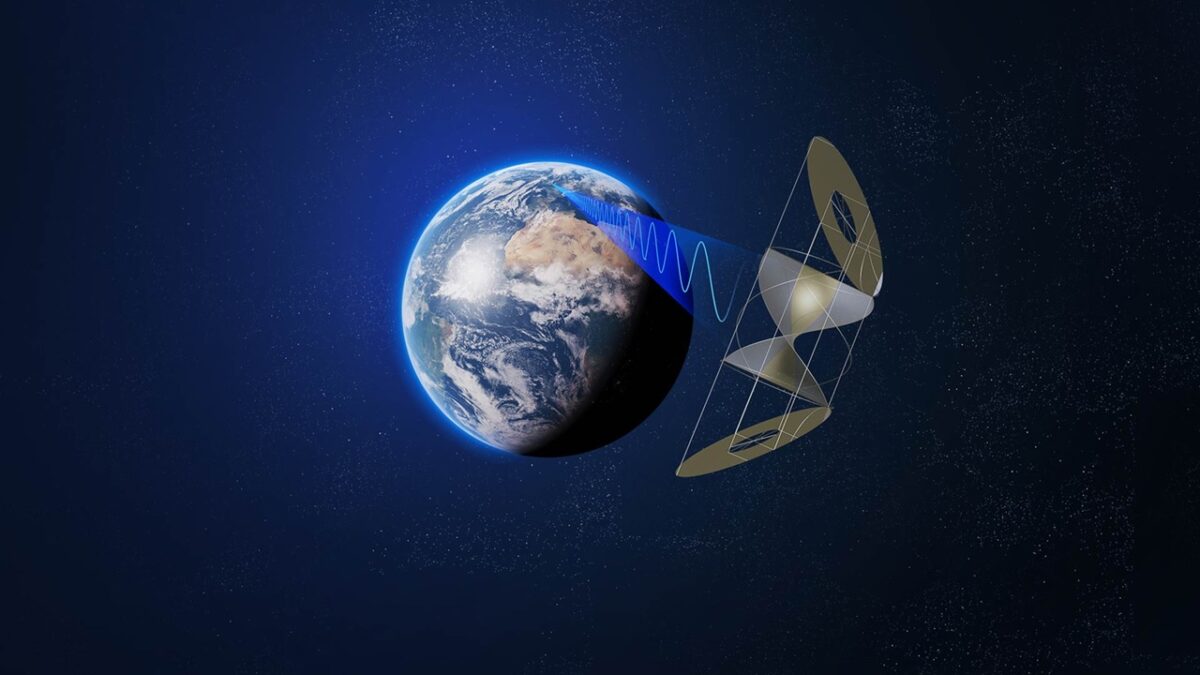Space Solar has secured an agreement with Reykjavik Energy to provide electricity from a space-based solar plant in 2030. There is a letter of intent in place between the UK-based startup and the Icelandic utility, with Space Solar expecting to transmit solar energy from orbit within five years.
Sam Adlen, co-CEO and executive director at Space Solar, told pv magazine the startup has already started identifying potential sites in Iceland where receivers could be located for electricity beamed from space, working in partnership with Reykjavik Energy and local cleantech consultancy Transition Labs.
The Space Solar proposition involves sending a satellite into orbit equipped with solar reflectors and thousands of lightweight PV modules. The reflectors direct sunlight to the solar cells, electricity is generated and then converted from direct current (DC) into a radio frequency (RF) for transmission. When the radio signal reaches receivers on Earth, waves are converted back into DC electricity which can be fed into the grid. Space Solar plans to have a 30 MW array operating in space in 2030 and intends to launch arrays with greater capacity afterward.
“We’ll scale out that [30 MW] product but then after nine years have a 180 MW system as well. Then after 12 years have a GW scale system, and then our target is 15 GW installed by the mid-2040s and scaling from there to percentages of the global electricity market,” Adlen told pv magazine.
Space Solar has opted to adopt the Cassiopeia satellite concept developed by British engineering company IECL. IECL claims its satellite design includes the first-ever phased array antenna with 360-degree electronic beam steering capability.
“You can get 24/7 baseload power all seasons, all weather, that’s the key benefit,” Adlen commented. He also stressed that space solar should be seen as “incredibly complementary” to terrestrial renewables.
“One of the real advantages of space solar power is we can instantaneously switch the beam between any point in the field of view” Adlen said. “In terms of grid constraints or optimizing the whole cost and functioning of the energy system internationally, it’s got incredible capabilities.”
When building a business case, the key metric for solar in space is cost per kilogram according to Adlen, who said that the satellite could potentially use a range of different PV – what matters is mass. The lighter the PV the less cost to get it into space and, potentially, the longer the lifespan of the module.
“Counterintuitively, as you make PV thinner it’s more radiation tolerant. If you think about it, it does make sense because there’s less likelihood of interaction,” said Adlen.
On efficiency, Adlen told pv magazine that from an “end-to-end” perspective, from sun to plug, space solar could boast around 18% efficiency.
“The main conversion efficiency is RF to DC and DC to RF, which is about 85% efficient,” said Adlen.
The resulting levelized cost of electricity (LCOE) has potential to be competitive in the marketplace, Adlen suggested. The Space Solar co-CEO said some studies had shown LCOE below $0.03 per kWh, although pricing estimates can vary significantly.
Following its October 2024 agreement with Reykjavik Energy there are a number of key development milestones on the horizon for Space Solar. Adlen said the startup currently has a half meter demonstration of its core technology – the ability to beam in 360 degrees with no moving parts – and should demonstrate ground to air transmission within 18 months. An in-space demonstration at kilowatt scale is expected in three years’ time, with the company’s 30 MW system coming “in five years’ time,” Adlen said.
The startup is also engaged in a $12.5 million seed funding round focused on wireless power transmission technology, which Adlen said should close by the end of 2024. Space Solar has also been grant funded to a total of “about $6 million” Adlen told pv magazine. An ongoing system design study funded by the UK government is scheduled for completion in February 2025.
This content is protected by copyright and may not be reused. If you want to cooperate with us and would like to reuse some of our content, please contact: editors@pv-magazine.com.



By submitting this form you agree to pv magazine using your data for the purposes of publishing your comment.
Your personal data will only be disclosed or otherwise transmitted to third parties for the purposes of spam filtering or if this is necessary for technical maintenance of the website. Any other transfer to third parties will not take place unless this is justified on the basis of applicable data protection regulations or if pv magazine is legally obliged to do so.
You may revoke this consent at any time with effect for the future, in which case your personal data will be deleted immediately. Otherwise, your data will be deleted if pv magazine has processed your request or the purpose of data storage is fulfilled.
Further information on data privacy can be found in our Data Protection Policy.